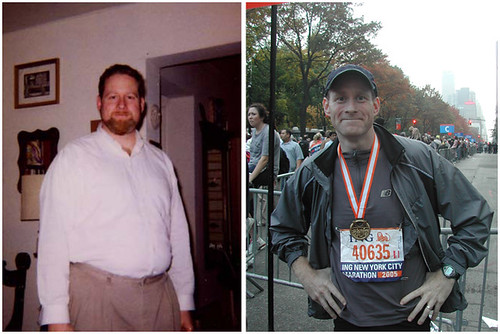(I get that search a lot. Just thought I'd save everyone some time.)
•

Exurbitude: 2007-2015
Bill Braine’s “old” blog about moving north from New York, about parenting, about finding a place and digging in. Links are guaranteed to be broken.


In the initial process, you’ll physically collect everything that’s sitting in The Giant Inbox of Your Life (my title). That means your physical inboxes, your disorganized files, your email inbox, your broken and functional appliances, spare plastic forks and spoons, your wallet, the little wicker basket on the table at the bottom of the stairs, the kitchen junk drawer that catches the bank receipts you’re not sure whether to shred, the papers sliding off the credenza, all your office supplies and your poor, overburdened mind. Since we’re talking work and home, these are two separate processes, although they’ll both take less time than you fear. Once it’s all collected, you subject it to the flowchart I was talking about earlier. Ask “what is it?” “Is it actionable?” “Is it part of a multi-step process?” “What’s the next action?” “Should I do it, delegate it, or defer it?” Then make lists and start doing.
Here’s the cult-like part. This shit takes over your brain. As with Weight Watchers, Jesus and the first Matrix, everything gets viewed through the new prism. You look at piles of paper differently. When you’re discussing work — “work” is anything you want to change — you’re concentrating on the goals and the strategy, and always calculating “what’s the next action?” Pointless deadlines become suddenly transparent, because you learn to prioritize based not upon the calendar, but upon what tasks you can complete in your current context, what immediate "emergency" tasks require of you, and upon the status of delegated or dependent-upon-others tasks. David Allen’s review processes cause you to look at your activities from the crap on your desktop to your five-year goals to your self-identity and vision of yourself for your whole life. At one point, he describes sitting home with his wife and discreetly placing an action into her inbox (if you take my meaning). THAT one always causes unbelievers to laugh. And yet…it makes sense, if she’s watching Grey’s Anatomy or paying the bills, and you don’t want to forget the thing.
GTD is a demanding discipline. It becomes harder to juggle multiple tasks mentally, because you realize you can’t win. So you list. Your reflex becomes “get that on paper.” And while that sounds like a drag, it’s far easier than the Old Way You Practiced Before You Achieved GTD Wisdom. That way, you were suffering — beginning one task only to abandon it because you were neglecting the Important Stuff, panicking and rushing through things, angstily avoiding commencing work at all. This way, you have stepped off the wheel.
Alas, I am but a lowly acolyte. You can always be a better Scientologist, or a more loyal Moonie — so with GTD. It really requires new physical and mental habits that are hard to craft. Especially at home. So, often, instead of swimming placidly and productively in mid-stream, one with the flow of work, I flounder along at the edge, doing it half-right (which is far better than doing it all wrong), but feeling like I’ve got it all wrong.
And meanwhile, things get done.
GTD Online
Merlin Mann’s a Big Fan
•
